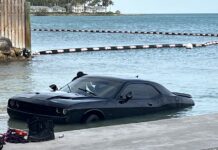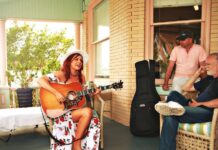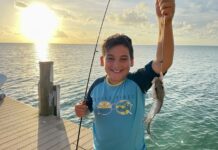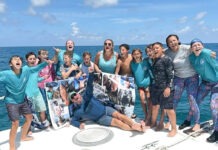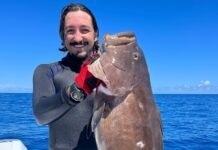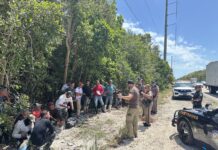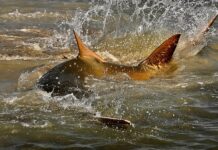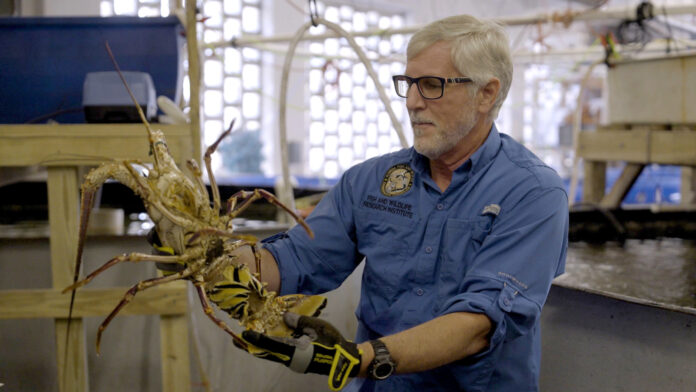
Members of the Florida Keys lobster fishing industry were the stars of a recent documentary short film screening co-hosted by Sereia Films and the Ocean Conservancy.
During a Q&A session at the event, which was held on Sept. 10 at Islamorada’s Bud N’ Mary’s Marina, local lobstermen revealed that the 2023 harvest so far has been a challenging one, while conservation experts debated whether recreational fishing has a “pillage mentality.”
Audience members included the filmmakers, local nonprofit staffers, charter fishermen and excited friends and family of the lobstermen who were a focus of one of the short films: “Florida Spiny Lobster,” a documentary by seafood education nonprofit Sereia Films and part of its series Eating Out: The Hunt for Sustainable Seafood.
At one point, when Islamorada commercial fisherman Jesse Hayes’s dog Porter appeared on the giant screen, the audience couldn’t help but say, “Awww,” and clap. A hometown audience, for sure.
“This is the first of hopefully more events like this, so our organization can create these connections in the community,” Sereia Films founder and sustainable seafood journalist Sarah Curry told Keys Weekly. “It’s helpful to get folks together and talk.”
For example, the Q&A panel members discussed the alarmingly high ocean temperatures.
“It’s a seafood boil out there,” said Hayes from the panel, noting that the heat made finding lobster difficult inshore, particularly when he was bully-netting in shallow water.
“It’s like we have put a microwave on in the ocean,” said commercial lobsterman Gary Nichols, who runs a 6,000-trap operation out of Conch Key. He explained that at the hottest point in late July, his boats’ computer equipment recorded a water temperature of 100 degrees.
FWC lobster biologist Tom Matthews, who also played a large part in the sustainable seafood film, assured the audience that the bug army is still around. “The lobsters moved — they didn’t die,” he said from the panel.
He explained to Keys Weekly that the hot water was not the worst of all possible scenarios: “It’s not a red tide that traps organisms. Hot water starts shallow and moves away, so the fish and lobsters can leave. We didn’t see mass fish die-offs.”
Also, the lobstermen were concerned about their bottom line.
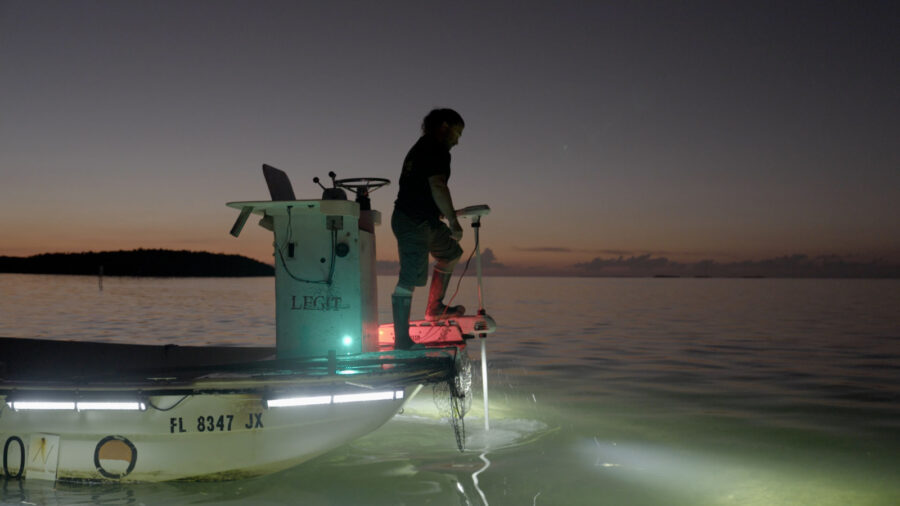
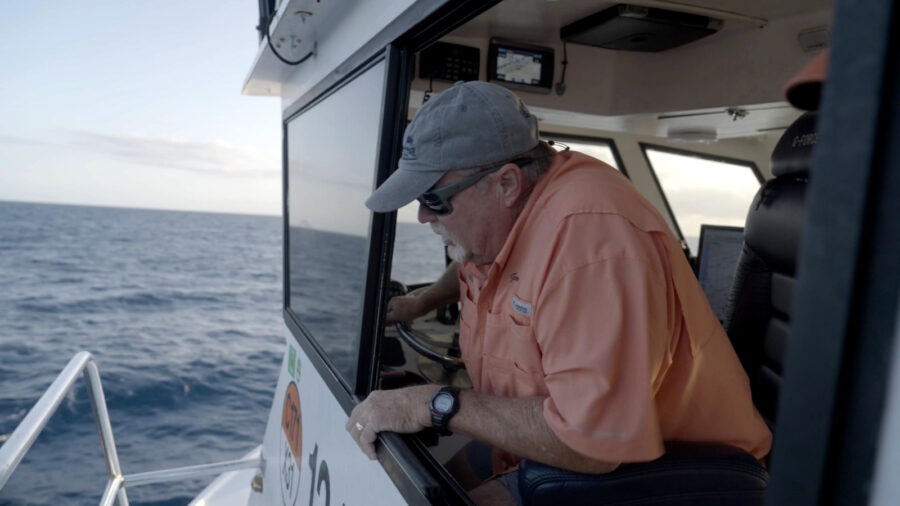
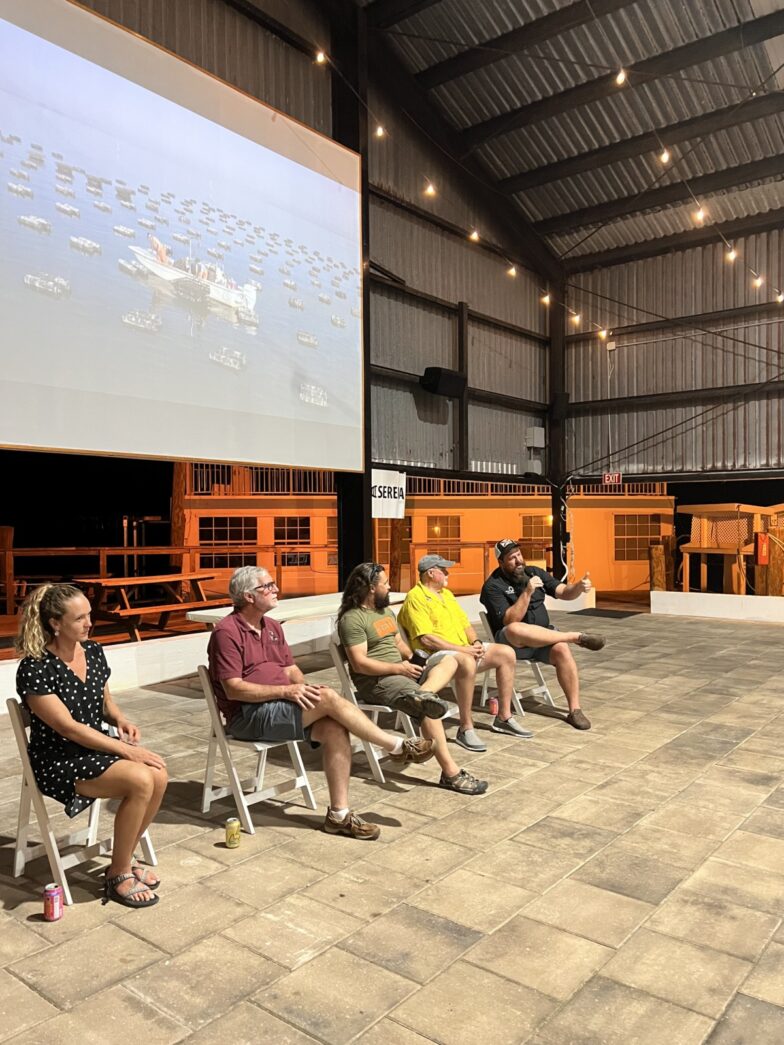
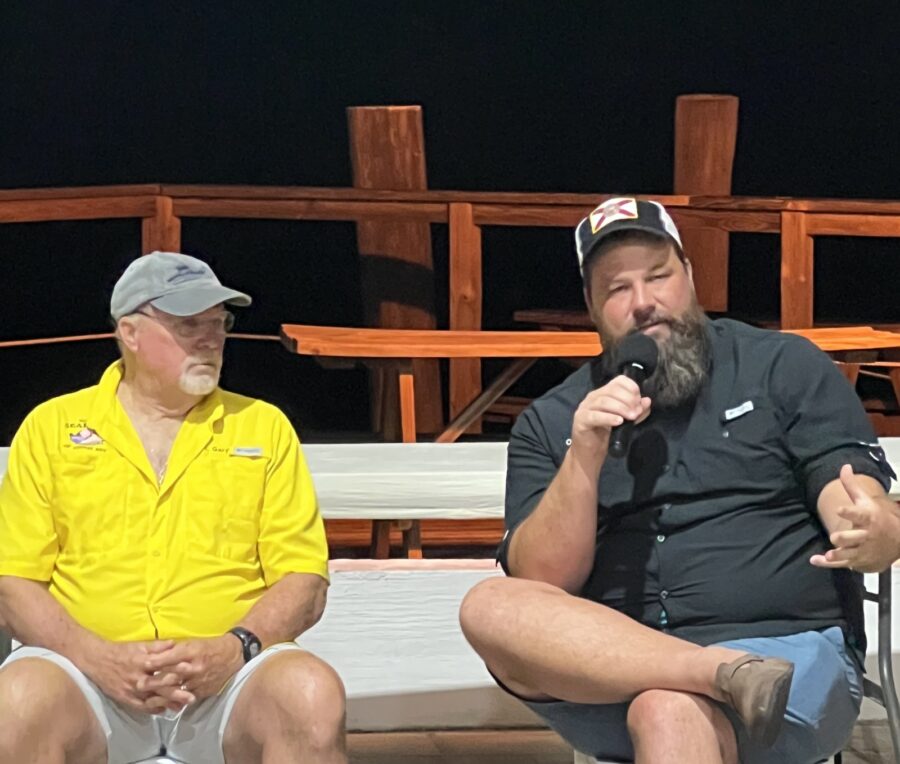
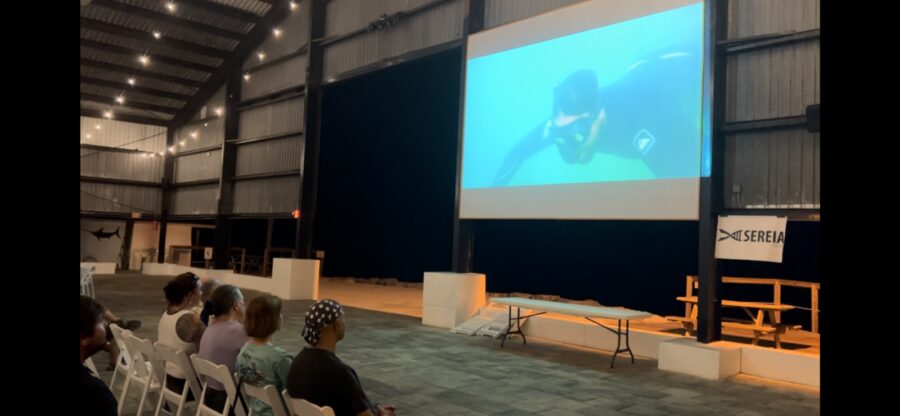
“We’re not making any money out there,” said Nichols, noting that just by leaving the dock for the day, he has spent around $2,000 on fuel, staff and bait. “We’re getting $4.50 or $5.50 a pound for lobster. … At Wendy’s, a hamburger is $10. A lobster sandwich would be cheaper.”
Matthews said the Florida commercial lobster industry is highly dependent on the Chinese market for sales, which have been low due to the country’s challenged economy and plummeting value of its currency.
Questions from the audience addressed whether recreational fishing — especially the locally unpopular lobster mini-season — hurts the fishery.
Trap molestation by the recreational crowd can take a hefty bite out of the profits of Hayes’s modestly sized business.
“During the first week of commercial lobster season, divers will rob me blind,” he said.
But Matthews pointed out that while many locals perceive that recreational fishers have a “pillage mentality,” his research shows otherwise.
“We interviewed 400 recreational lobster fishermen during mini-season,” he said. “For the majority of them, the most important thing they do is hang out with friends and family — not all of them want to ‘pillage.’”
Still, J.P. Brooker, the Florida Conservation Director for the Ocean Conservancy, hopes that recreational fishermen and -women can be more “contemplative” about a “catch ’em all” mindset. And remember that conservationists are not the enemy.
“I am pro fishing,” he said. “We recognize all users of the fishery to make sure all fisheries last forever.”
Which jives with the theme of the night: Buy local. “Support your local fishermen, fish farmer and oyster farmer, because they need it,” said Curry.
Nichols suggested asking for a whole Florida spiny lobster when ordering from a restaurant to ensure that it has been bought locally. Lobster from other countries are frozen and shipped by the tail, rather than whole.
“If it’s whole, it’s from us,” he said. “It’s fresher, and it can’t compare in taste.”
For more info about donating or volunteering for nonprofit Sereia Films, go to sereiafilms.org.
To report any fish kills observed on the water, call FWC hotline 800-636-0511.
To buy freshly caught lobster ($8 per lobster), call Nichols Seafood at 305-393-1415.
